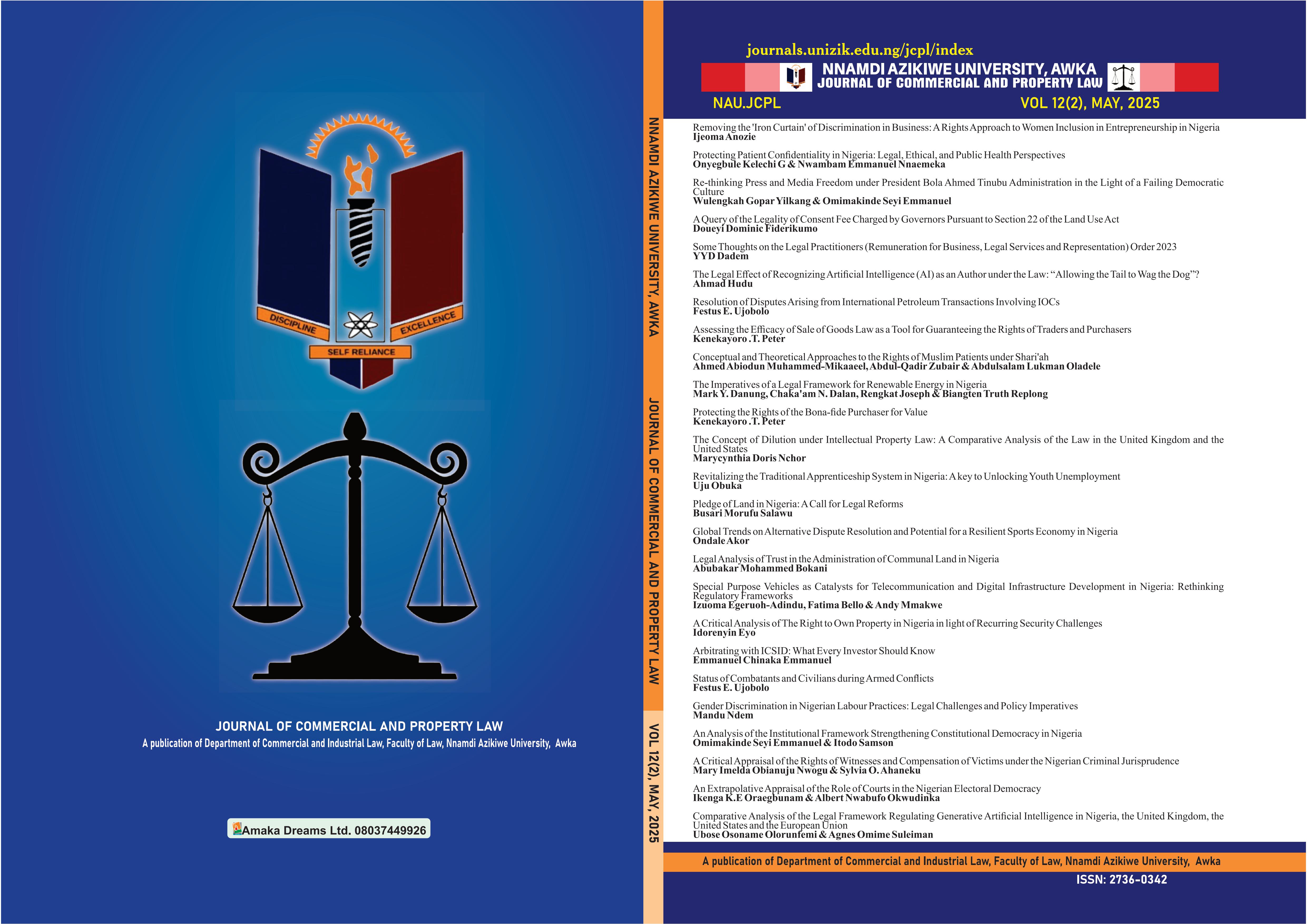SPECIAL PURPOSE VEHICLES AS CATALYSTS FOR TELECOMMUNICATION AND DIGITAL INFRASTRUCTURE DEVELOPMENT IN NIGERIA: RETHINKING REGULATORY FRAMEWORKS
Keywords:
Special purpose vehicle, digital infrastructure, telecommunication, regulatory frameworksAbstract
The rapid growth of Nigeria's telecommunications sector is critical to its economic diversification, digital transformation, and global competitiveness. However, infrastructural deficits, regulatory inefficiencies, and limited financing hinder the sector's potential. Special Purpose Vehicles (SPVs), structured within Public-Private Partnership (PPP) frameworks, offer a strategic legal and financial solution for mobilizing investments, mitigating risks, and driving sustainable telecom and digital infrastructure development. This paper examines the deployment of SPVs in Nigeria’s digital infrastructure development and telecommunications sector, highlighting key models such as InfraCos for broadband deployment, TowerCos for passive infrastructure, PPP-SPVs for rural connectivity, and hybrid models involving government ownership and private concessions. It explores their roles in facilitating fiber optic expansion, network sharing, and 5G rollout. The study using doctrinal research methodology also analyses Nigeria’s evolving legislative and regulatory framework governing SPVs, drawing from the Nigerian Communications Act 2003, the Infrastructure Concession Regulatory Commission (ICRC) Act 2005, the Companies and Allied Matters Act 2020, and sector-specific guidelines on co-location, infrastructure sharing, and universal service. Policy frameworks such as the National Broadband Plan (2020–2025), the Strategic Blueprint for the Digital Economy (2023–2027), and the National PPP Policy are examined for their alignment with SPV-driven models. Findings indicate that while SPVs have facilitated infrastructure expansion and investment, significant legal and institutional reforms are required to strengthen transparency, streamline regulatory processes, and bolster investor confidence. The paper recommends the development of a new and comprehensive SPV regulatory framework devoid of the bottlenecks in the current frameworks, harmonization of the extant laws, and the introduction of legal safeguards to protect consumers and stakeholders. Ultimately, leveraging SPVs is not merely a financing strategy but a legal and economic imperative for bridging Nigeria’s digital divide and achieving inclusive digital transformation.

